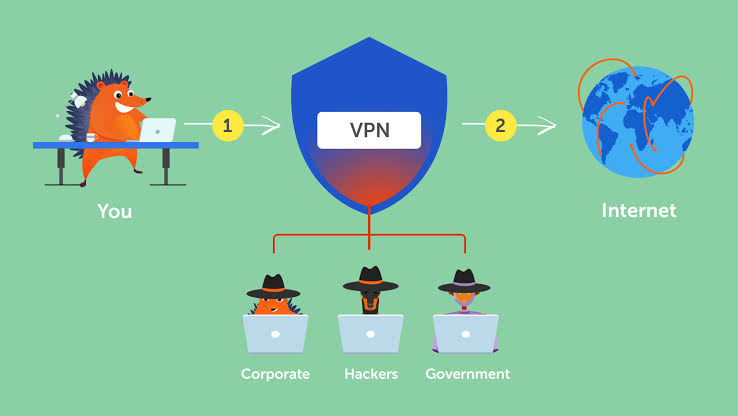VPN refers to a virtual private network. A virtual private network (VPN) is a simple and effective solution to improve your internet privacy and independence. If you’re using the internet, your device is constantly sharing data with other companies on the internet. A VPN creates a private connection between the user network and the server. The VPN allows you to communicate data to a remote server over an encoded, secured network VPN server. Your data will then be forwarded to its final destination over the network. There are various benefits to rerouting your internet traffic through a VPN server:
- It can protect users’ online identities.
- It safeguards your information.
- It gives you greater freedom when using the internet.
How Does VPN Work?
Linking to a VPN is usually an easy process. Users download VPN software after subscription to a VPN service. You choose a server to link, and the VPN takes care of the rest. The following will happen to your data when the connection is established:
- The VPN-installed software encrypts user data and sends it to the VPN server over a secured network via the VPN-installed software. Your Internet Service receives the data, but they cannot snoop on it due to security.
- The VPN server decrypts the encrypted information from your PC.
- Information is sent to the VPN server across the internet, and you will receive a response that is intended for you, the client.
- The VPN server encrypts the traffic again before sending it back to you.
- The data will be decrypted by the VPN software on your devices, allowing you to understand and access it.
A virtual private internet protects your IP address by allowing the network to route it via a VPN host’s specially modified distant server. The VPN server has become your information source when you use a virtual private network to access the internet. It ensures that your Internet Service Provider (ISP) and third parties will not see the sites you visited or the data you transmit via the internet. It would not be very sensible if anyone managed to obtain your information.
Benefits of a VPN Connection
A Vpn service hides your internet transmission of data and secures it from illegal access. Anyone with internet connectivity has the desire to see unencrypted data. Hackers and cyber thieves can’t understand this content if you use a VPN.
Secure encryption: An encryption key is required to analyze the information. However, on public networks, your online activities are protected with the help of a VPN.
Disguising your whereabouts: VPN servers work as a proxy on the internet, allowing you to hide your location. Your actual location cannot be identified because the demography location information originates from a server in another nation. It implies that any available record of your user activity will be completely hidden.
Secure Data Transfer: You may have to retrieve essential files on your company’s network if you operate remotely. This type of data needs a secure network for safety purposes. A VPN connection is frequently necessary to obtain access to the network. VPN services link to private servers and utilize encryption technologies to limit the danger of data leaking.
Summary:
VPN is effective and helpful, and it is gaining a lot of popularity. We are attempting to explain this technique in the most understandable and simple terms possible. There are numerous technical and legal issues in the actual world. You can access regionally protected material from anywhere globally using a VPN. Many streaming services are not available in all countries. You may still use the VPN to gain access to them.


